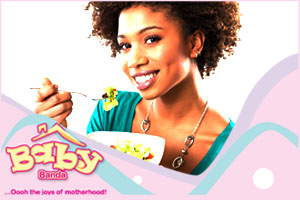Flavour: The flavours of the foods and spices you eat will transfer into breast milk to some extent. Babies usually enjoy these flavours and may nurse longer. Some babies will suck longer when a novel flavour is introduced. These flavours help introduce the flavours of family foods to the baby.
Colour: The colours of some foods transfer into breast milk. For example, high intake of carrots may make your milk “orange-ish,” beets may make your milk “pink” and spinach or other leafy greens may make your milk “greenish.”
Foods that Increase milk supply?
There are no special foods that you can eat to increase your milk supply. Certain herbs have been used to increase milk supply. Hibiscus, fenugreek, blessed thistle, goat’s rue, fennel, alfalfa, nettles, dill, moringa tea, brewers yeast available in powder and capsules and others have been suggested.
What about Colic and Gas in the newborn?
There is no scientific evidence to suggest that the diet of the breastfeeding mother have any effect on the behaviour or comfort of her newborn baby. There is, however, an enormous amount of empirical knowledge, based on experience and observation, to suggest otherwise. The elimination of certain fruits and vegetables for the first six weeks will help prevent colic. These foods are listed below. It takes six to eight weeks for the baby’s digestive system to fully mature. Alcohol and coffee should be avoided while breastfeeding as they pass through the milk to the baby. Other foods on the list can be introduced slowly from when your baby is six weeks old. Some babies will tolerate raw garlic and spicy foods sooner than others will.
Foods to avoid for the first 6 weeks:
Fruits: Berries, Grapes, Oranges, Lemons, Passion, Pineapple and Strawberries
Vegetables: Broccoli, Cabbage, Peas, Cucumber, Capsicum, Lettuce, Tomato, Cauliflower, Legumes, Raw onion
Others: Wheat, Strong herbs and spices (cayenne, chilli, oregano, thyme, marjoram, sage, rosemary), Coffee, Chocolate, Alcohol
Foods to be eaten freely during the first six weeks:
Fruits: Apples, Paw-paw, Pears, Bananas, Avocado, Mangoes, Watermelon
Vegetables: Beetroot, Carrots, Celery, Eggplant, Pumpkin, Potato, Zucchini (courgettes), Mushrooms, Onions (well cooked), Green leafy vegetables e.g. Terere, spinach
Whole grains and Starches: Rice, Oats, Barley, Millet, Sorghum, Maize (Ugali), Sweet potatoes, Arrow roots, Cooked Bananas
Dairy Products: Cottage cheese, Milk, Yoghurt, Mala
Note:
It is worth mentioning that colic and reflux are two different conditions and should not be confused. Colic does not usually extend beyond six weeks in most babies. The elimination of the recommended foods does not appear to help the baby with diagnosed reflux.













